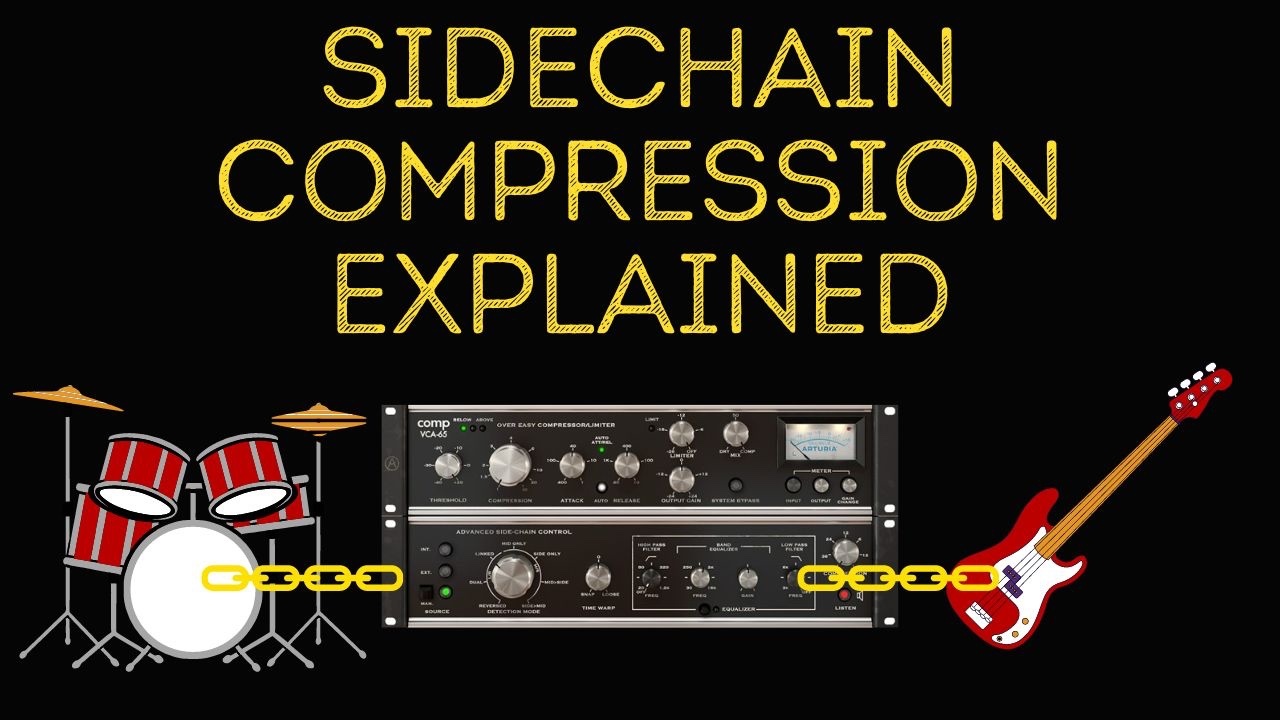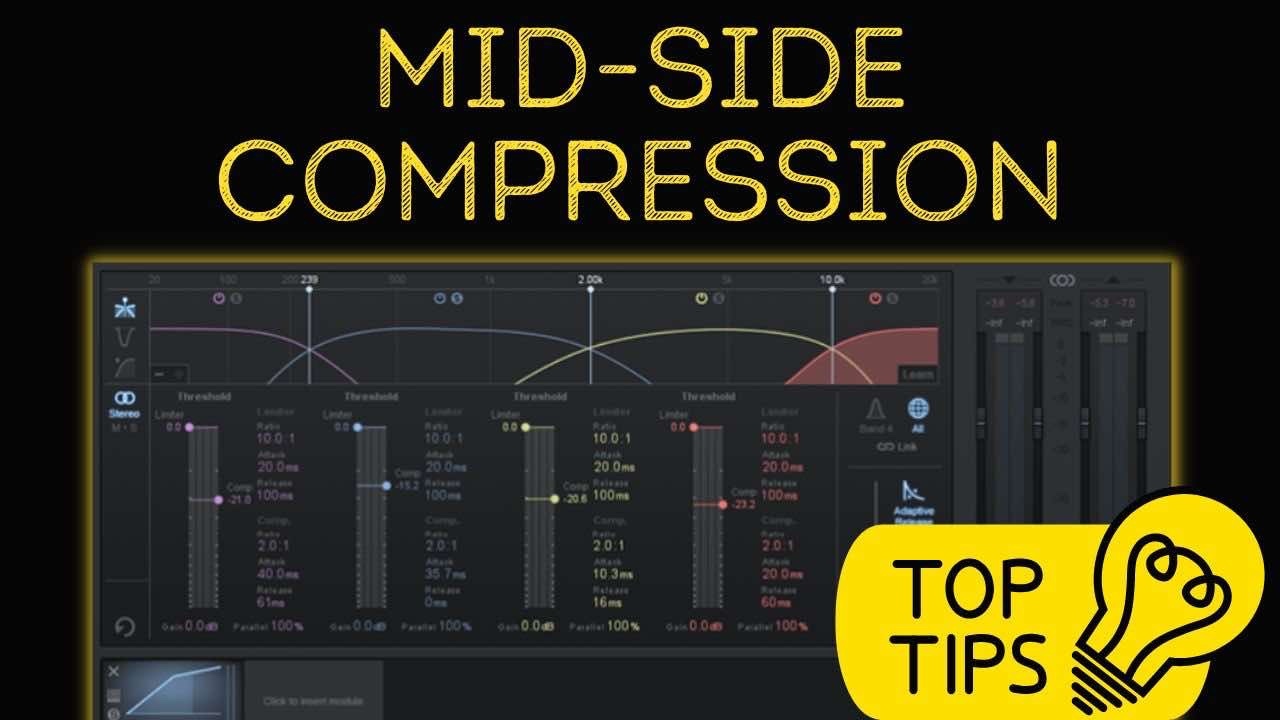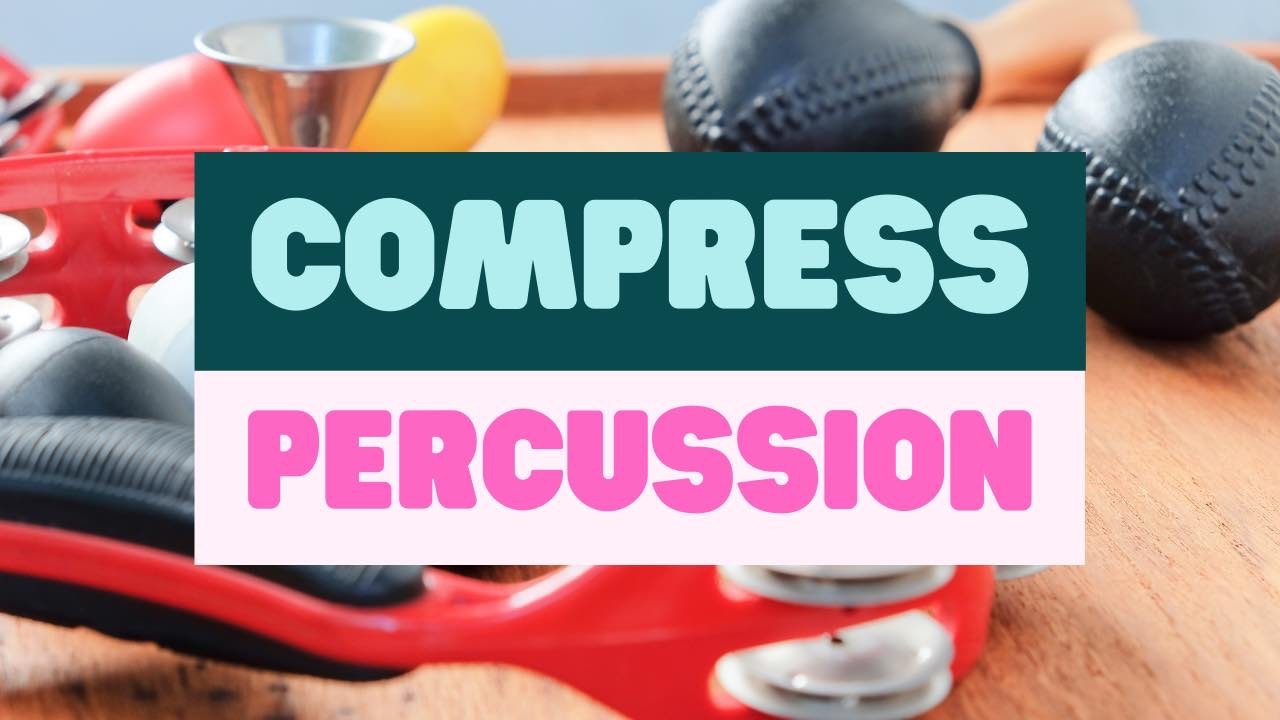Here's one of the most a common problem I've noticed in many songs when I'm doing coaching sessions or song reviews.
The issue? Turning on the bus compressor way too early in the mix, leading to a loss of dynamism and a collapsed mix.
In this video and article, I’ll guide you on how to av...
Parallel compression is one of the most powerful techniques in music production. The idea is to combine an uncompressed signal with a heavily compressed version of that same signal. With this technique, you can increase the average level of a signal and lock a sound into place without getting ...
Sidechain compression can be one of the most powerful tools in your music production toolkit. It's extremely versatile, and can be used to create distinctive rhythms, increase the perceived volume of drums and create extra space in your mix. So let's look at how you can use sidechain compressi...
Do you ever feel like your mixes are a little too narrow? Or maybe a loop you're using as a really annoying sound panned off to the side that you'd like to remove? Maybe you want your master to sound tight and consistent? Mid-side compression is the perfect tool for fixing these problems, and ...
One of the biggest debates in music production is whether you should compress reverb. And the most common answer is "there's no rules in music."
But that's not very helpful.
So in this article, I'm going to tell you - yes, you can compress reverb! But it has a very specific sound. So you sh...
Multi-band compression is one of the secrets pro-mix engineers use to get tight, punchy mixes. But it can be really challenging to understand. I've put together this article to get you up and running using multi-band compression like a pro!
There are a lot of different percussion instruments out there, and most of them benefit from some compression! In this guide you'll learn some of the most popular compressor settings for common percussion instruments, as well as tips for applying "glue" compression to your compressor bus.
Not...
Struggling to get the organ to sound right in your mix? To be honest, unless you’re dealing with an organ solo or a plucky organ sound, organs generally aren’t that dynamic to begin with. You can often get away with minimal compression to subtley control the dynamics of your organ.
Typically,...
The sheer variety of different synth sounds can make them really challenging to mix. Thankfully, this article will provide you with a powerful framework for how to approach compressing synthesizers.
Let's dive in!
Note: This article may contain affiliate links, meaning I would receive a comm...
From gentle flutes to roaring saxophones, woodwinds present a host of challenges when it comes to mixing. In this article you'll learn the best compression settings for all the major types of woodwind instruments so that your mixes will sound dynamic and professional!
If you want to improve t...
Whether you're looking for soaring legato violin parts, powerful pizzicato cellos, or just want a mellow string section to sit in the background, compression is the key to getting your strings to sit perfectly in the mix. In this article I'll walk you through how to compress strings. You'll al...
Compression is one of the most essential tools in any producer or engineer’s kit.
It has become a fundamental process in modern mixing.
However, the process of compressing instruments is often misunderstood, which can make it difficult for beginners (and even intermediate mixers) to craft p...












